Overview of Smoke Alarm Regulations in Victoria
The regulations mandate smoke alarms in all Victorian homes, ensuring safety through compulsory installation and maintenance, with penalties for non-compliance to protect residents effectively always.
Smoke alarms are compulsory in all Victorian homes, including rental properties, to ensure resident safety. Landlords and homeowners must install and maintain alarms, with penalties for non-compliance. This requirement aims to protect lives and property by ensuring early fire detection and adherence to safety standards.
1.2 Historical Background and Legislative Framework
Victoria’s smoke alarm regulations were established to address fire safety concerns following historical incidents. Legislation mandates installation in all residential properties, with updates reflecting technological advancements and safety standards. Compliance is enforced under state laws, ensuring accountability for landlords and homeowners to protect lives and property effectively over time.

Types of Smoke Alarms Permitted in Victoria
Victoria permits photoelectric and ionization smoke alarms, with photoelectric being mandatory for new installations. Interconnected and smart models are also allowed, enhancing safety and compliance standards effectively.
2.1 Photoelectric Smoke Alarms
Photoelectric smoke alarms are highly effective in detecting smoldering fires and are mandatory for new properties in Victoria. They reduce false alarms compared to ionization models, offering reliable early warning systems. Their advanced sensors detect particles in the air, ensuring timely alerts for safer evacuation and compliance with Victorian fire safety standards effectively always.
2.2 Ionization Smoke Alarms

Ionization smoke alarms detect flaming fires effectively by monitoring ions produced when smoke enters the chamber. While permitted in Victoria, they are more prone to false alarms from cooking or steam. Regulations allow their use, but photoelectric models are often preferred for their lower false alarm rates and broader detection capabilities always.
2.3 Smart Smoke Alarms with Additional Features
Smart smoke alarms offer advanced features like Wi-Fi connectivity, voice alerts, and app notifications for remote monitoring. They integrate with smart home systems, providing real-time updates and enhanced safety. Victoria’s regulations permit these devices, encouraging their use for improved fire detection and convenience, while maintaining compliance with safety standards effectively always.
Installation Requirements for Smoke Alarms
Installation is mandatory in all Victorian homes, with specific locations required between bedrooms and living areas. Compliance with Australian Standards ensures effective fire detection and safety always.
3.1 Locations Where Smoke Alarms Must Be Installed
Smoke alarms are required in all bedrooms, hallways adjacent to bedrooms, and living areas on every level of the home. They must be installed inside each bedroom and in hallways outside sleeping areas, with additional alarms in garages or basements if used as living spaces, ensuring comprehensive fire detection always.
3.2 Number of Smoke Alarms Required Per Property
Victorian regulations require at least one smoke alarm on each level of a home, with additional alarms in every bedroom and hallway. Properties with multiple levels must have alarms installed on each floor, and interconnected systems are mandatory for new homes, ensuring complete coverage and early fire detection always.
3.3 Installation Standards and Compliance
Smoke alarms in Victoria must meet strict installation standards, including placement in hallways near bedrooms and on every level. Hardwired systems are mandated for new homes, with interconnectivity ensuring all alarms activate together. Annual inspections and certification are required to ensure compliance, maintaining safety and legal adherence effectively always.
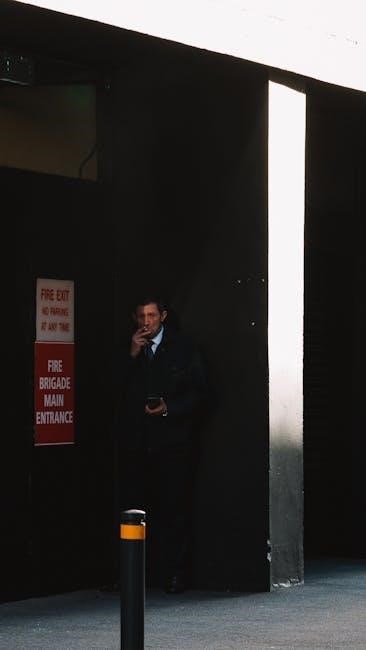
Maintenance and Testing of Smoke Alarms
Regular testing, including monthly button checks and annual professional inspections, ensures functionality. Cleaning dust and replacing batteries annually are crucial for reliability and compliance with safety regulations always.
4.1 Monthly Testing Procedures
Homeowners must press the test button on each smoke alarm monthly to ensure proper function. Interconnected alarms should sound simultaneously. Dust and debris should be cleaned from sensors, and batteries tested if applicable. Regular testing ensures early detection of issues, maintaining reliable fire safety and compliance with Victorian regulations consistently every month.
4.2 Annual Maintenance Checks
Annual maintenance requires inspecting and cleaning smoke alarms, ensuring sensors are free from dust. Replace batteries or check hardwired systems. Verify proper installation and functionality, addressing any wear or damage. This comprehensive check ensures reliability and compliance with Victorian fire safety standards, safeguarding residents year-round effectively and consistently every year.

4.3 Battery Replacement Guidelines
Batteries in smoke alarms must be replaced annually or as specified by the manufacturer. Use high-quality, smoke-alarm-rated batteries to ensure reliability. For hardwired systems, backup batteries should also be replaced yearly. Regular replacement prevents failure and ensures continuous protection, complying with Victorian safety standards and avoiding potential fines for non-compliance effectively always.
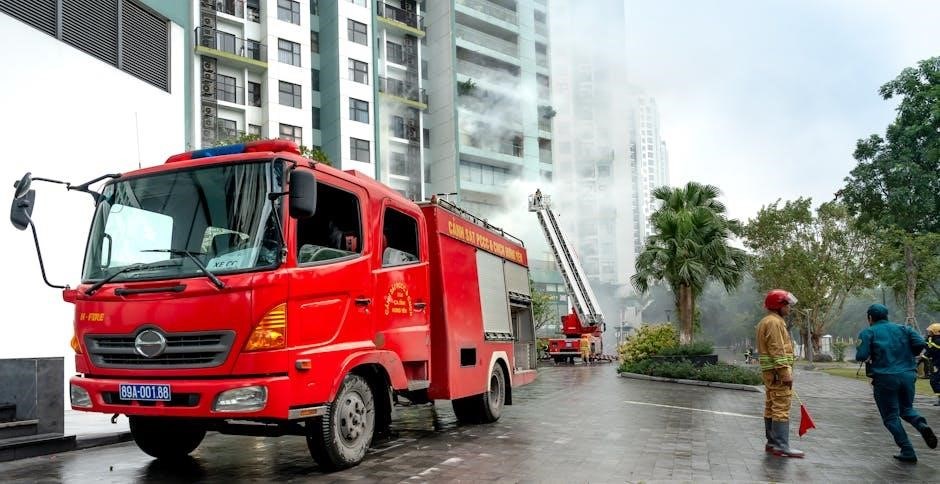
Penalties for Non-Compliance with Regulations
Non-compliance with smoke alarm regulations in Victoria can result in significant fines for property owners, ensuring adherence to safety standards and protecting residents effectively always.
5.1 Fines for Non-Installation of Smoke Alarms
Property owners in Victoria face significant fines for failing to install smoke alarms, as mandated by law. Non-compliance can result in substantial penalties, emphasizing the importance of adhering to safety regulations to protect residents and avoid legal consequences;
5.2 Penalties for Failure to Maintain Smoke Alarms
Failure to maintain smoke alarms in Victorian properties can lead to penalties, including fines. Property owners must ensure devices are clean, functional, and have working batteries. Regular testing and maintenance are legally required to guarantee tenant safety and compliance with regulations. Neglecting these duties can result in legal action and financial consequences.
5.3 Legal Consequences in Case of Fire-Related Incidents
In fire-related incidents, property owners may face severe penalties if smoke alarms are non-compliant. This includes significant fines, legal action, and potential criminal charges. Failure to maintain functional smoke alarms can lead to liability for damages or injuries, emphasizing the importance of strict adherence to Victoria’s smoke alarm regulations and maintenance standards.
How to Obtain the Victoria Smoke Alarm Regulations PDF
Access the Victoria Smoke Alarm Regulations PDF via official government websites, fire safety authorities, or local council resources. Download the document for free to ensure compliance with safety standards and legal requirements in Victoria.
6.1 Official Government Websites
Visit the official Victorian government website (Vic.gov.au) to access the Smoke Alarm Regulations PDF. The document is available for free download, providing comprehensive details on installation, maintenance, and compliance standards. Ensure you refer to the latest version for accurate information.
6.2 Fire Safety Authorities
Fire safety authorities in Victoria, such as the Metropolitan Fire Brigade (MFB) and Country Fire Authority (CFA), provide resources and guidelines on smoke alarm regulations. Visit their official websites or contact them directly to obtain the latest PDF versions of the regulations, ensuring compliance with Victorian fire safety standards.
6.3 Local Council Resources
Local councils in Victoria provide essential resources on smoke alarm regulations. Visit their websites or offices for PDF guides, ensuring compliance with current laws. Examples include the Melbourne City Council and regional councils, offering updated information to help residents meet safety standards effectively.
Key Updates and Changes in Recent Regulations
Recent updates in Victorian smoke alarm regulations include mandatory installation of photoelectric alarms, interconnected systems in new homes, and annual certification requirements for rental properties to enhance fire safety standards.
7.1 Latest Amendments to Smoke Alarm Laws
Victoria’s updated smoke alarm laws now require photoelectric alarms in all homes, mandating interconnected systems in new properties and renovations. Annual certification for rental properties is compulsory, ensuring compliance and heightened fire safety standards to reduce fire-related incidents and protect residents more effectively statewide.
7.2 New Technologies and Their Implications
Advancements in smoke alarm technology include smart alarms with Wi-Fi connectivity, enabling remote notifications and voice alerts for enhanced safety. Interconnected systems ensure all alarms activate simultaneously, providing comprehensive coverage. These innovations improve early detection and response, reducing fire risks and enhancing overall home safety effectively statewide always.
7.3 Public Education Campaigns
Public education campaigns play a critical role in raising awareness about smoke alarm regulations in Victoria. These initiatives educate residents on installation requirements, maintenance, and the importance of compliance, ensuring community safety and adherence to legal standards effectively statewide always.
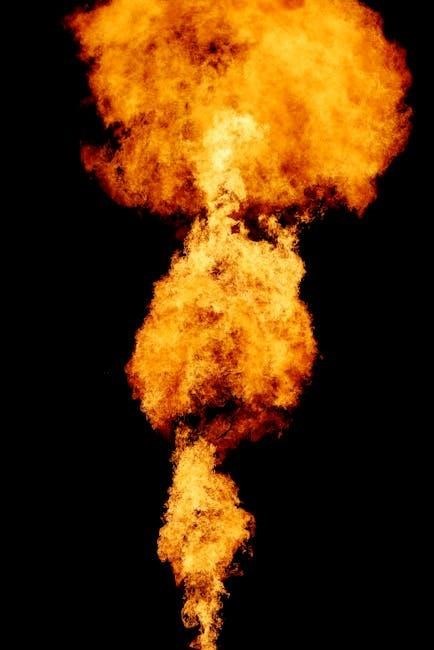
Importance of Smoke Alarms in Home Safety
Smoke alarms are crucial for early fire detection, preventing fatalities, and ensuring timely evacuation. They are vital for protecting lives and property, emphasizing compliance with safety regulations always.
8.1 Statistics on Smoke Alarm Effectiveness
Statistics reveal that smoke alarms significantly reduce fire-related deaths and injuries. Homes with functioning smoke alarms experience a 50% reduction in fatalities. In Victoria, mandatory smoke alarm installation has led to a notable decrease in fire incidents, emphasizing their crucial role in early detection and timely evacuation.
8.2 Case Studies of Fire Incidents
Case studies highlight the critical role of smoke alarms in preventing fatalities. A 2020 Victorian fire incident demonstrated that functioning alarms alerted residents early, enabling evacuation. Conversely, a 2018 case with non-compliant alarms resulted in severe injuries, underscoring the importance of adherence to regulations for public safety and property protection.
8.3 Community Awareness Programs
Community awareness programs play a vital role in educating Victorians about smoke alarm regulations. These initiatives, often led by fire safety authorities, emphasize the importance of working smoke alarms, proper installation, and regular maintenance. Workshops, brochures, and digital campaigns ensure residents understand their responsibilities, fostering a safer community and reducing fire-related risks effectively.
Landlord Responsibilities and Smoke Alarm Compliance
Landlords in Victoria must ensure smoke alarms are installed, maintained, and functional in rental properties, with regular testing and battery replacements to comply with legal requirements always enforced.
9.1 Legal Obligations for Rental Properties
Landlords in Victoria are legally required to install smoke alarms in all rental properties, ensuring compliance with Australian Standards. They must maintain functionality through regular testing and battery replacements, with records kept. Non-compliance can result in fines or legal action, particularly in fire-related incidents, emphasizing the importance of adherence to safety regulations strictly always enforced.
9.2 Consequences of Non-Compliance for Landlords
Landlords face significant penalties for non-compliance, including fines and legal action. Failure to install or maintain smoke alarms can result in liability in fire-related incidents. Authorities enforce strict regulations to ensure tenant safety, making compliance essential to avoid financial and legal repercussions for property owners in Victoria always enforced rigorously.
9.3 Best Practices for Landlords
Landlords should ensure smoke alarms are installed in compliance with regulations, conduct regular maintenance, and keep records. Testing smoke alarms monthly, replacing batteries annually, and ensuring interconnected systems are functioning properly are critical. Educating tenants on their responsibilities and maintaining proof of compliance can prevent legal issues and ensure tenant safety effectively always.
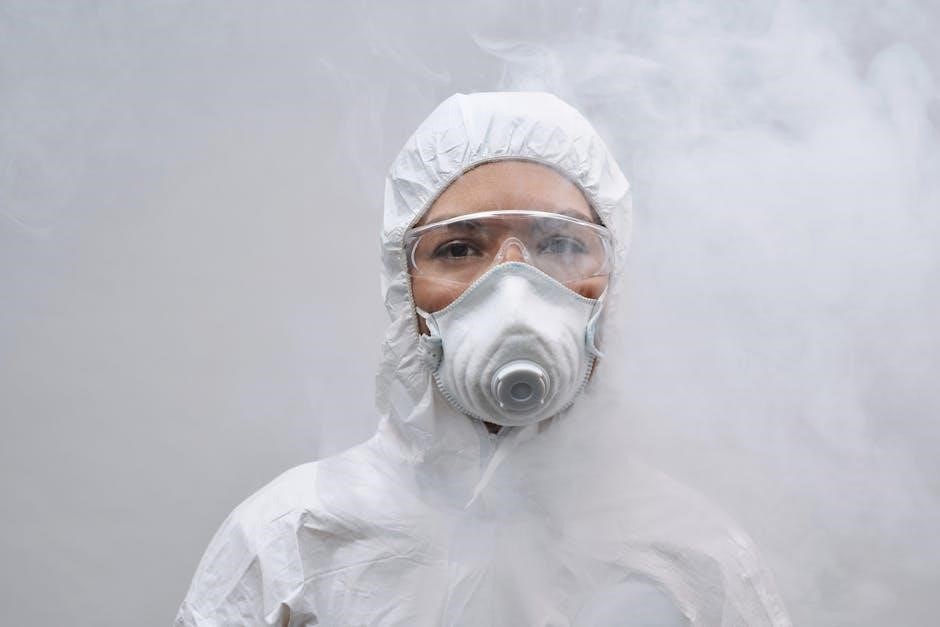
Benefits of Hardwired Smoke Alarm Systems
Hardwired smoke alarms offer enhanced reliability, fewer false alarms, and seamless integration with home electrical systems. They ensure continuous protection, reducing fire risks and providing peace of mind for residents always.
10.1 Reliability and Reduced False Alarms
Hardwired smoke alarm systems are highly reliable, eliminating issues with battery decay and interference. Their interconnected design ensures consistent performance, reducing false alarms caused by external factors like cooking fumes or dust, thereby providing accurate and dependable fire detection for enhanced home safety and peace of mind always.
10.2 Interconnected Smoke Alarm Systems
Interconnected smoke alarm systems are mandatory in Victoria, ensuring all alarms activate simultaneously upon detection. This enhances safety in multi-level or large homes, providing consistent alerts. Hardwired systems are preferred for reliability, reducing false alarms and ensuring all occupants are notified promptly in case of fire, improving overall safety compliance.
10.3 Enhanced Safety Features
Modern smoke alarms in Victoria may include enhanced features like voice alerts, emergency lights, and smartphone app integration. These technologies improve alerting capabilities, especially for those with hearing impairments. Advanced sensors reduce false alarms, ensuring reliable detection and improving overall safety outcomes for residents, aligning with stringent regulatory standards and public safety goals effectively.

Role of Local Authorities in Enforcement
Local councils enforce smoke alarm regulations through regular inspections, issuing penalties for non-compliance, and conducting educational campaigns to ensure property owners meet safety standards effectively in Victoria.
11.1 Inspection Processes
Local authorities conduct routine inspections to ensure smoke alarm compliance, focusing on rental properties and high-risk areas. Inspectors verify installation, functionality, and maintenance, documenting findings and addressing violations promptly to safeguard public safety and enforce regulations effectively in Victoria.
11.2 Reporting Non-Compliance
Non-compliance with smoke alarm regulations is reported to local authorities through official channels. Residents, landlords, or inspectors can submit reports, triggering investigations. Failure to address violations may result in fines or legal action, ensuring adherence to safety standards and protecting community well-being in Victoria.
11.3 Educational Programs
Local authorities in Victoria conduct educational programs to promote smoke alarm compliance and home safety. These initiatives include workshops, online resources, and community events, aiming to empower residents with knowledge on installation, maintenance, and testing. The goal is to reduce fire-related incidents through informed and proactive community engagement.
Adhering to Victoria’s smoke alarm regulations is crucial for ensuring home safety and preventing fire-related tragedies. Compliance protects lives and properties, emphasizing the importance of these life-saving devices.
12.1 Summary of Key Points
Victoria mandates smoke alarms in all homes, requiring photoelectric or ionization types. Installation must follow standards, with regular maintenance essential. Non-compliance leads to fines. Landlords bear responsibility, and hardwired systems offer enhanced safety. These regulations ensure early fire detection, crucial for saving lives and reducing damages effectively.
12.2 Encouragement for Compliance
Compliance with Victoria’s smoke alarm regulations is crucial for safeguarding lives and properties. By adhering to the rules, residents ensure early fire detection, reducing risks and potential damage. It also aligns with legal requirements, avoiding penalties and fostering a safer community. Prioritizing compliance protects families and supports overall fire safety standards effectively.
12.3 Future Directions in Smoke Alarm Technology
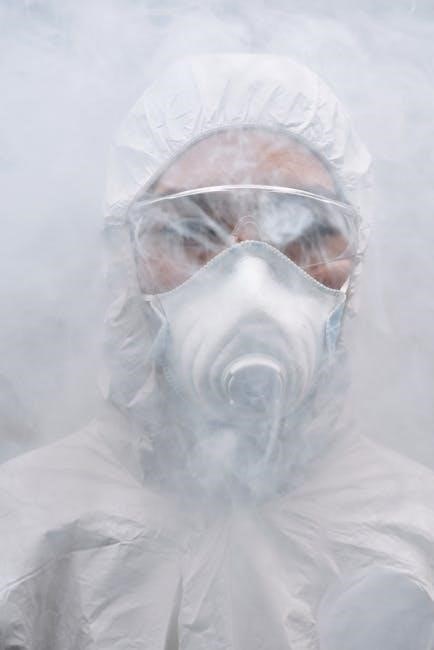
Future advancements in smoke alarm technology include enhanced connectivity, AI-driven detection, and integration with smart home systems, improving safety and efficiency in fire prevention. Improved sensors and longer battery life boost reliability, while automated compliance features enhance user convenience and regulatory adherence effectively.
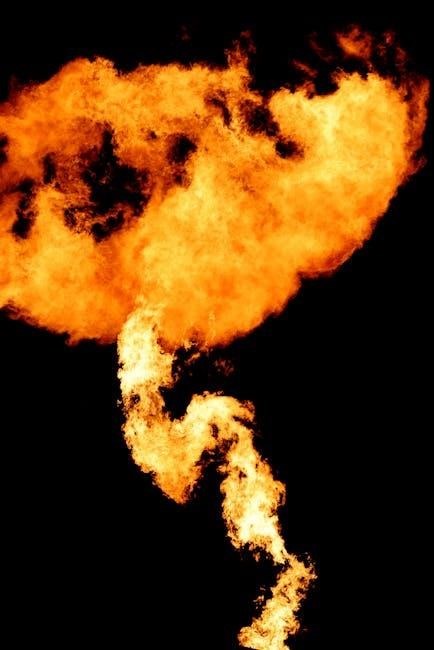
Leave a Reply
You must be logged in to post a comment.